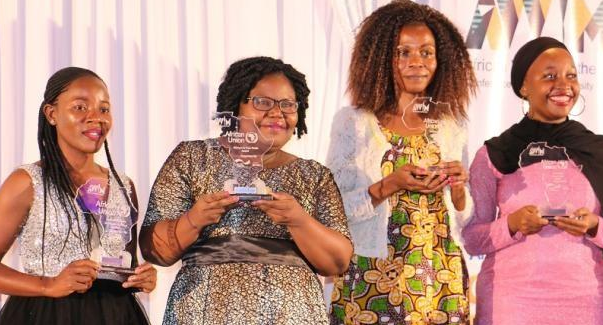Photo: African Union Commission
Registration by applicants interested to participate in the African Women in Media: Agenda 2063 Awards closed on 8th December. Every year during the annual African Women in Media Conference, female journalists are given the opportunity to pitch their story ideas to document the progress in the realization of the various Agenda 2063 Aspiration and Goals.
The AWIM Agenda 2063 Awards Pitch Zone is unique in its setting as it provides journalists a setting where they can showcase their creativity and ultimately be supported with cash grants to produce stories and news pieces on opportunities for fostering Africa’s socio-economic growth through the implementation of Agenda 2063.
Five female journalists will be selected as the winners of the Agenda 2063 Awards 2022. The awardees will receive a $3000 cash grant to support the production of their stories.
The 5 Award Categories are:
(1) AU Theme of the Year 2022 – The Year of Nutrition “Strengthening resilience in nutrition and food security on the African continent: Strengthening agro-food systems, health and social protection systems for the acceleration of human, social and economic capital development.”
(2) Africa’s Digital transformation Strategy – Positioning Africa for the 4th Industrial Revolution (related to Agenda 2063 Programme for Infrastructure Development in Africa)
(3) Re-branding Africa – Changing Narratives and perceptions (related to Agenda 2063, Aspiration 7)
(4) Promoting efforts towards the Economic and Financial Inclusion of African Women (Agenda 2063 Aspiration 6, AU Gender Equality and women’s Empowerment Strategy (GEWE);the Protocol to the African Charter on Human and Peoples’ Rights on the Rights of Women in Africa (Maputo Protocol), and the AU Constitutive Act.
(5) Promoting the Rights of Children in Africa (Agenda 2063 Aspiration 6, African Charter on the Rights and Welfare of Children)
Women are the focus of only 10% of news stories, comprise just 20% of experts or spokespeople interviewed, and a mere 4% of news stories are deemed to challenge gender stereotypes. Studies show that men are more likely to be quoted than women in the media, and more likely to cover “serious” topics. (Source: UNESCO “Women Make News 2018”). The consequence of marginalising the voices and perspectives of women and the wider issue of gender imbalance in the newsroom are significant.







